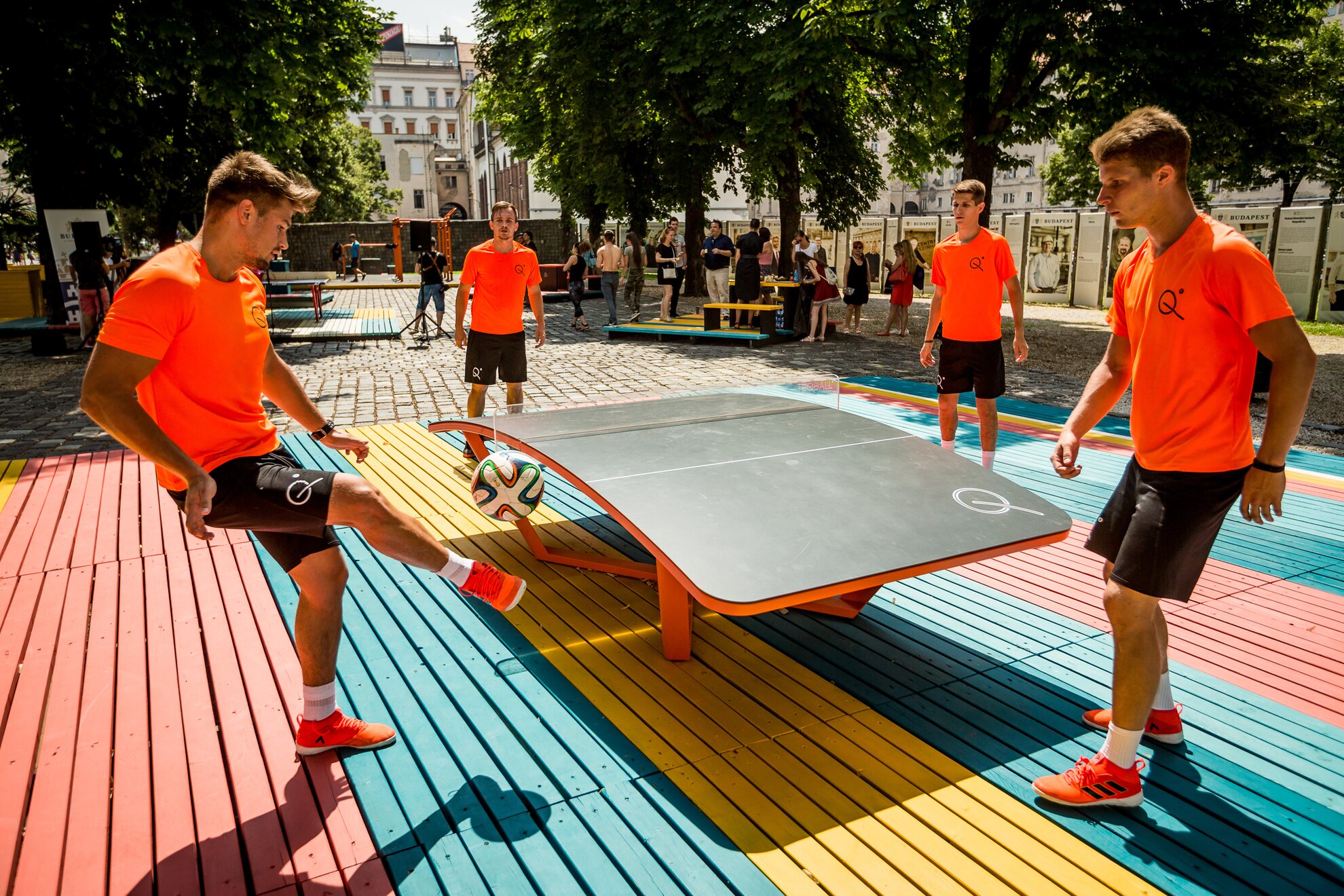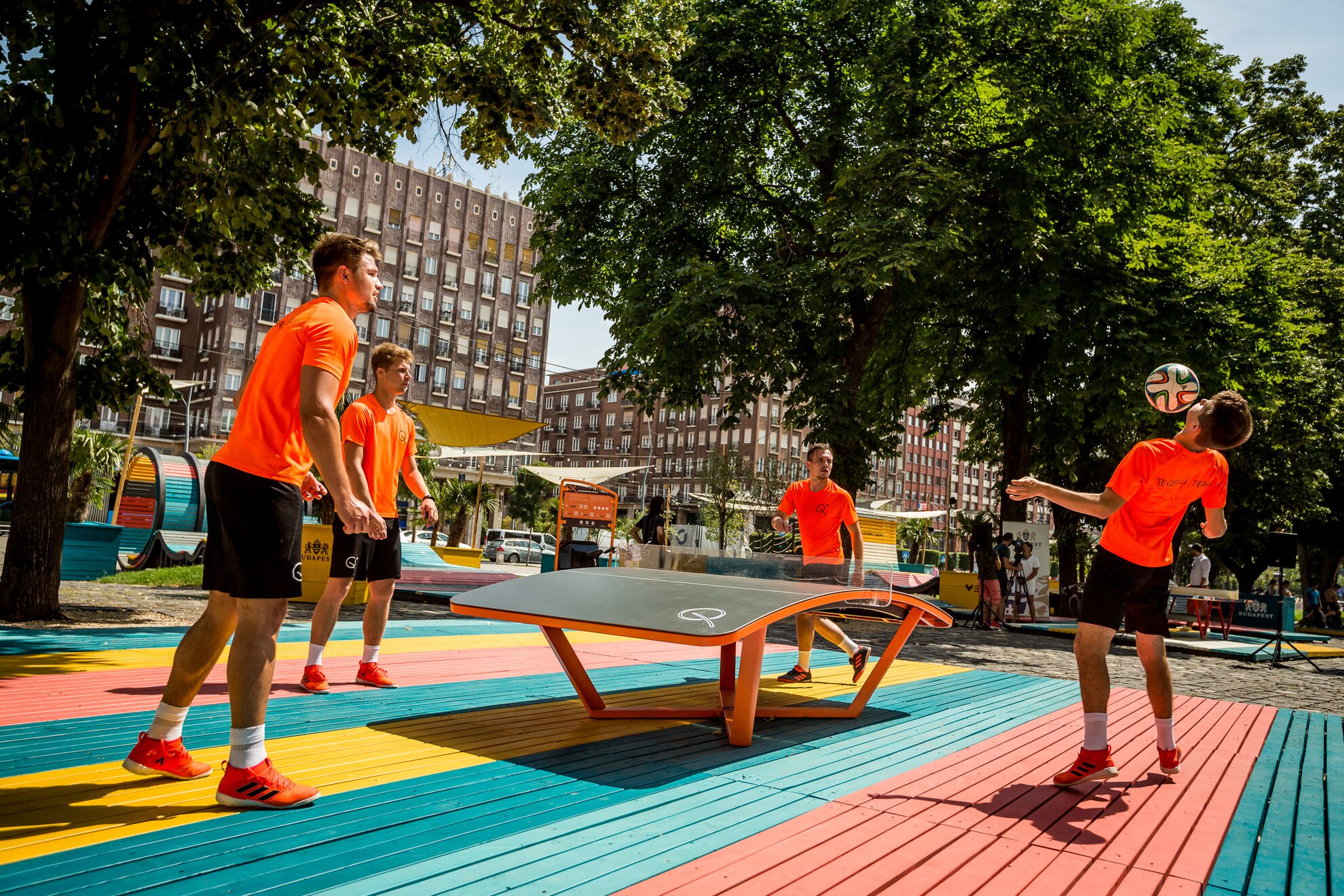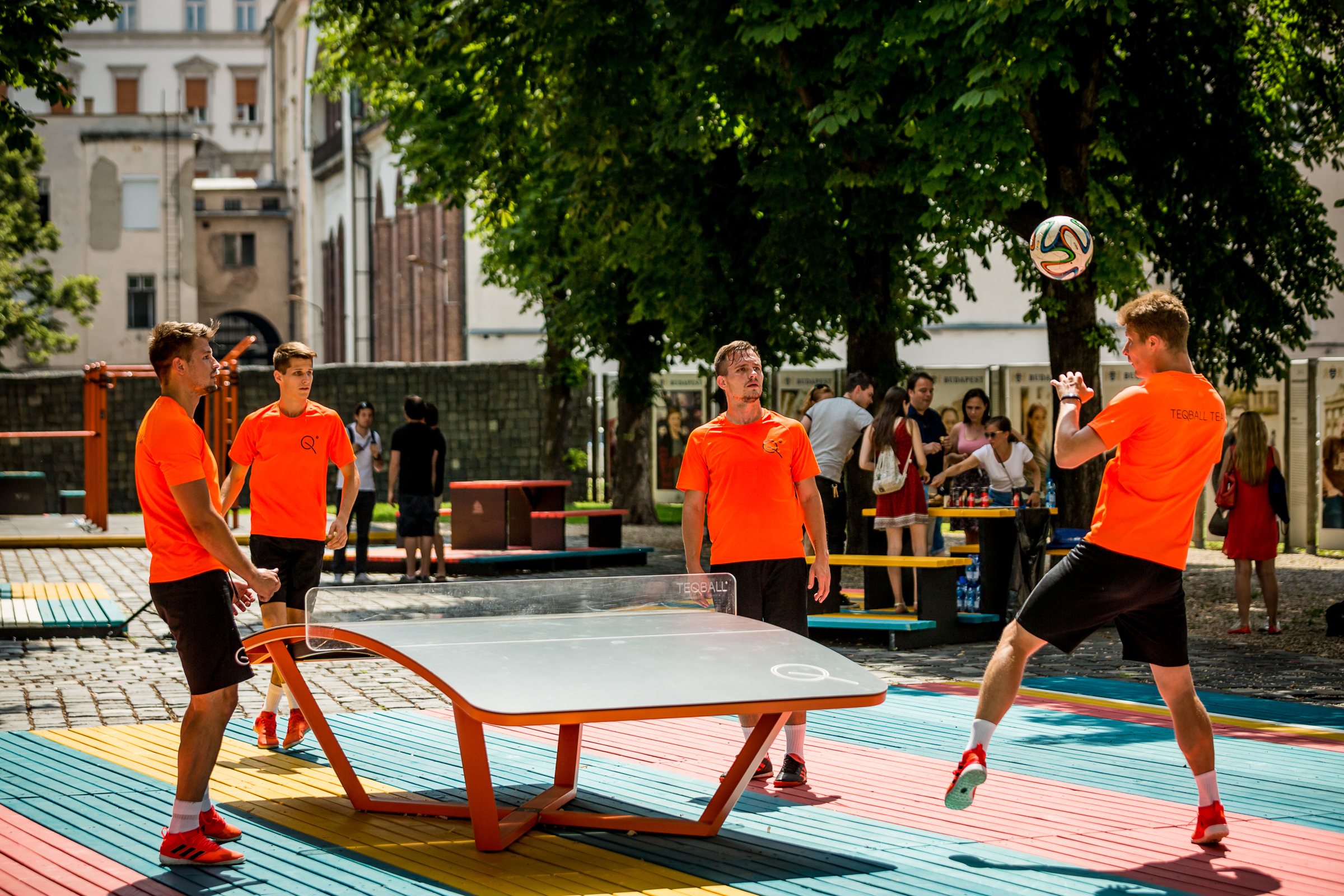Lionel Messi has two in his back garden and China has just ordered a shipload of hundreds. Teqball tables don’t come cheap – currently retailing at about €2,000 each – but with the sport growing faster, more Hungarians taking it up in public places and the Budapest-based company rushing to produce a more affordable model, this swift game of skill and strategy may soon be a global craze.

A contemporary take on eternally popular lábtengó, a kind of foot tennis played on public courts in the parks of Budapest and around Lake Balaton for generations, Teqball was developed by three inventive and ambitious Hungarians. All knew each other from sports clubs at the University of Technology in Budapest, though it was Gábor Borsányi who first realised its potential during a spontaneous session of lábtengó at Balaton. At the same resort, a player from the German Bundesliga happened to be on holiday. He joined in and loved it.

From this eureka moment, the three Hungarian friends set about developing lábtengó for the modern age. Much like Rubik before them, the trio were following in a long tradition of Hungarian invention. Here, rather than a cube, the key feature is the cleverly designed curving table. Rather than the predictable bounce of any flat surface, in Teqball players are confronted with the ball coming at them every which way. They also must control it with a different part of the body than just used by their opponent.

Just like in tennis, games are played in singles or doubles, but there’s also a 3 v 3 version. The world’s top footballers – Ronaldinho, Luís Figo and Lionel Messi – have been seen in action around the Teqball table in promotional demonstrations.
Today, a select group of sports students regularly gather at the Teqball headquarters at Budapest’s Expo Centre to take the game to a new level. Invited to showcase the sport in Thailand, China and by soccer-focused Prince Albert II of Monaco, these Magyar ambassadors have also helped in breaking new markets, and seeing the sport recognised by the Olympic Council of Asia.

Currently, these top Hungarian players are practising for the second Teqball World Cup to place in France this October. Naturally, the first was held in Budapest, in 2017. Meanwhile, the three co-founders and a full-time staff of 50 at Teqball HQ are working towards the ultimate goal – to have this unique Hungarian invention accepted as a full Olympic sport.




